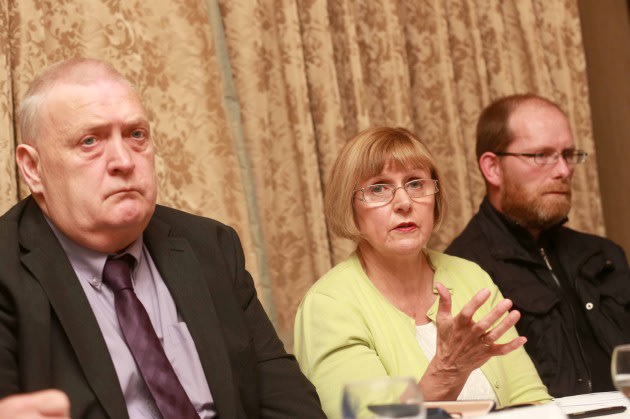Files held by the British government on the 1974 Dublin and Monaghan bombings have again come under scrutiny as President Michael D Higgins called for a fresh investigation.
Speaking yesterday at an meeting between families of those killed and injured in the bombings, that left 34 people dead, he said there are still “many unanswered questions” in relation to the attacks.
During his speech he referenced two All-Party motions in 2008 and 2011 that called for access to be given to an “independent, international, judicial figure to all original documents held by the British Government relating to the atrocities”, with the aim of “assisting in the solution of these crimes”.
“The fact that these motions were supported by all shades of political opinion in the Oireachtas is reflective of the moderation and reasonableness of the request being made”, President Higgins said.
I share your hope, and that of the Irish Government, that the British Government can find a way to respond positively to this measured and constructive proposal.
He added that asking people to ‘forget about the past and move on’ isn’t acceptable, and has been important in recent years due to improvements in the relationship between the United Kingdom and Ireland.
“As we progress towards such a better future, we must not forget those who died, those who mourn them and those who were injured”.
“A strategy of amnesia is simply not an option.”
---------------The families of the Dublin and Monaghan bombing victims are to sue the British Government to compel them to release documents about the atrocities.
Derek Byrne who sustained critical injuries in the Dublin bomb and Paddy Askin whose father was killed in the Monaghan blast will be the lead plantiffs in the case in Belfast High Court on behalf of at least 25 families.
Saturday marks 40 years to the day since the deadliest day of the Troubles when three bombs in Dublin and a fourth in Monaghan killed 33 people.
Nobody has even been charged with the bombings and there has been widespread allegations of collusion between loyalist paramilitaries and state forces.
- The Justice for the Forgotten group this morning gave details of the case being taken alongside representatives from KRW Human Rights Lawyers and the Pat Finucane Centre.
They allege that there was prior knowledge of the attacks by the state and that adequate preventative measures were not taken. The further say that there was insufficient investigation afterwards.
A report Judge Henry Barron in 2003 found that collusion may have been at play in the lead up to the bombings and strongly criticised the British Government for not making original documents available for his inquiry.
As well as writing to authorities in Northern Ireland and the Britain, solicitors for the families have also written to An Garda Síochána asking why they have not assisted the Police Ombudsman Northern Ireland with their investigations.
Contact was made first between the solicitors and An Gardaí Síochána six months ago and there has been one letter of response from gardaí in the interim.

Solicitor Kevin Winters says that, although a case is not being taken against Irish authorities directly, “there may be potential to make ancillary applications”.
Winters said that “at the heart of this is the overarching protection that is given to informants”, adding that it’s “shameful that the Government has not acknowledged this”.
He added that the Da Silva report into the killing of solicitor Pat Finucane showed that there was a collusive policy during the Troubles.
The families have previously taken two separate actions to European Court of Justice but they came to nothing because of limitations due to the time that has passed since the bombings.
Justice for the Forgotten’s Margaret Unwin, who has been working with the families for over 20 years, said that families are hopeful but are not expectant that their case will provide answers:
On is always hopeful but the families are under no illusion that this is going to be a very difficult and prolonged process. We don’t know what the outcome will be but the families made this decision very reluctantly in the absence of any other mechanism.
“We have tried very hard with the British Government, through discussions with the British Ambassador and nothing has come of that which was very disappointing,” she said.

No comments:
Post a Comment